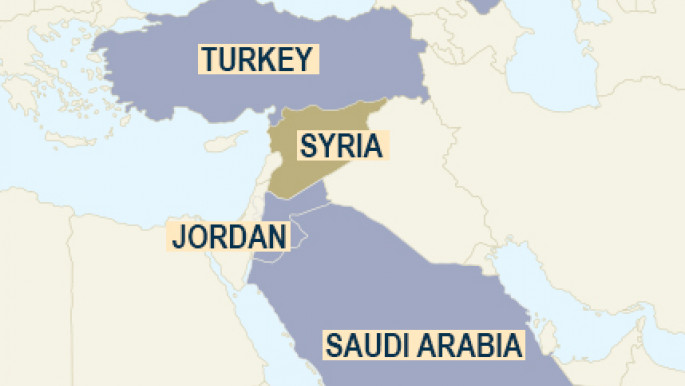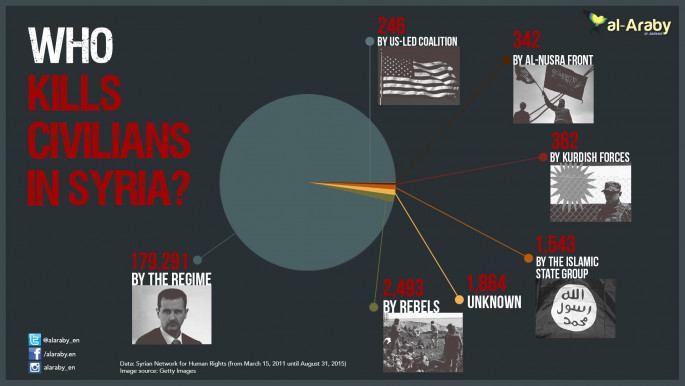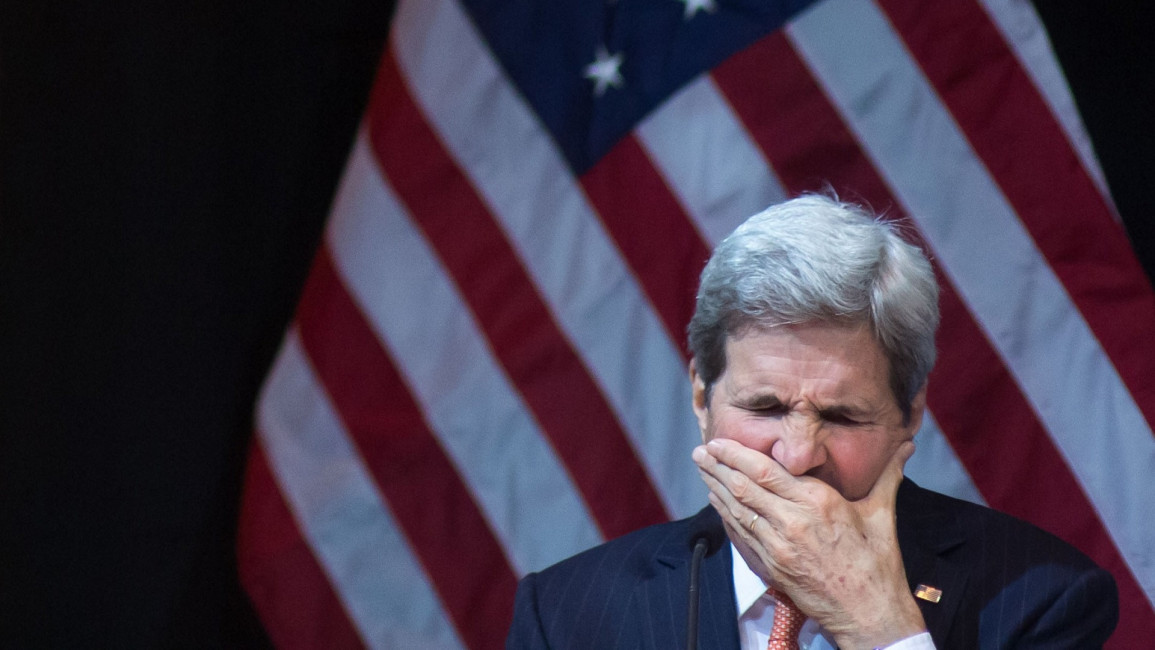Syrian opposition: Vienna plan 'kicks differences down the road'
Global diplomats agreed in Vienna Saturday on a fixed calendar for Syria that would see a transition government in six months and elections within 18 months.
A final statement after the meeting said the goal was to bring Syrian government and opposition representatives together by January 1.
Anas al-Abdeh of the opposition Syrian National Coalition (SNC) said the statement remained "unclear" but marked some progress.
"A ceasefire is in principle a good thing as it will alleviate people's suffering. But the most important thing is observing its implementation," he told AFP.
Yahya Maktabi, secretary general of the SNC, cautiously welcomed the outcomes of the Vienna talks. He told al-Araby al-Jadeed: "In principle, there are some positive points that can be built upon. We are now waiting to meet with the ambassadors of friendly nations to brief us on the details before the Coalition declares its position."
 |
|
Maktabi stressed that the SNC was a partner in fighting terrorism, but blamed international "complacenty" towards the regime of Bashar al-Assad for the proliferation of IS.
But Samir Nashar, a fellow Coalition member, derided the Vienna plan as "frustrating and unrealistic", insisting it "will not lead to a political solution".
"How do they expect that after everything that has happened in Syria, people will just kiss each other in the streets?" he asked.
With millions displaced and its infrastructure devastated, Nashar said Syria would need much longer to hold free and fair elections.
He warned that the omission from the Vienna statement of a key aim of the uprising -- President Bashar al-Assad's departure -- would strengthen claims by jihadi groups that the international community is "conspiring against the Syrian people".
"This was the biggest blow... This is a gift to Daesh, to extremism," he said, using the Arabic acronym for the Islamic State jihadist group.
For his part, Okab Yahya, SNC member, told al-Araby al-Jadeed the participants in the Vienna meeting have kicked their differences down the road.
Yahya argued that the Vienna statement circumvented the most important item in the Geneva I communique by replacing the transitional governing body with a national unity government.
Salah Badr al-Din, a Syrian opposition figure, described the Vienna outcomes as a "step backwards." He said one of the biggest reasons is failure to repretent the forces of the opposition in the summit.
"We are entering a new phase in the conflict over Syria between regional and international powers, to divide Syria into zones of influence, and where the Syrians have no role in deciding their future."
 |
| Click to enlarge |
'Paving way' for peace
On Sunday, a top Iranian official said several countries at the Vienna talks wanted Assad barred from future elections, but Tehran, a key backer of Syria's regime, insisted the demand be withdrawn.
Assad's departure has been the centrepiece of opposition demands since Syria's uprising began in 2011 and Western powers -- including the United States, France and Britain -- have called for him to step down.
Karim Bitar, head of research at the Institute for International and Strategic Relations in Paris, said Sunday that differences of opinion on Assad "are not insurmountable" as long as a "climate of trust is created".
"A reasonable consensus could then be reached,' he said.
Saturday's talks in Vienna were the second round of broadened diplomatic efforts to end Syria's war which has killed more than 250,000 people.
Diplomats from 17 countries as well as three international organisations met the day after attacks claimed by IS in Paris left at least 129 people dead.
Hassan Abdel Azim, head of the National Coordination Committee for Democratic Change, an internal opposition group, said Vienna had set out a "practical plan".
"Everything that happens in Vienna, we agree with and is in line with the vision of the NCCDC for a political solution," he said.
But he cautioned that the process remained "open to amendments".
Confidence-building measures, including a ceasefire, prisoner releases, and aid deliveries were all "steps that pave the way for a transitional period, forming a government, and holding elections", Abdel Azim said.
Ceasefire 'far from reality'
Syria's conflict began with anti-government protests but later fractured into a multi-front war between the regime, rebels, Kurds and jihadists, with shifting military alliances.
UN peace envoy to Syria Staffan de Mistura was tasked at Vienna with bringing about a ceasefire between warring groups.
But Fares Buyush, head of the Fursan al-Haq rebel brigade fighting in north and northwestern Syria, said the decisions reached in Vienna were "far from reality" and that a ceasefire would be "very difficult" to implement.
And Asaad Hanna, a spokesman for the Division 101 rebel group, said Vienna's goals -- including a ceasefire -- were divorced from the reality of forces fighting both IS and Assad's troops.
"Just because the international community holds a press conference, it doesn't mean they're going to stop Daesh," Hanna said.
"The uprising is happening on the ground. How can the meetings exclude the decision-makers on the ground, who would be the ones implementing the ceasefire?"
Bitar agreed: "On the ground, this roadmap won't change very much in the short term."
"As long as the details have not been discussed and the timeline remains vague, each camp will first seek to consolidate its positions," he said.
On Sunday Damascus remained vague in its response to Vienna.
"Syria has always believed that the political process was necessary to reach a solution," Information Minister Omran Zohbi said.
"The political process should respect national sovereignty and the choice of the people in designating their leaders and president."



